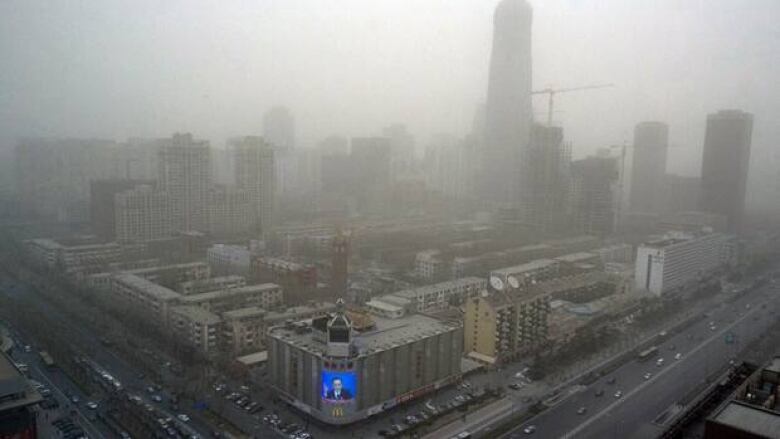Air pollution limits at Beijing Olympics eased heart burden

The Beijing Olympics were a powerful laboratory for showing how improvements in air pollution improve cardiovascular health.
The Chinese capital is plagued by chronic air pollution. When the city was awarded the 2008 Summer Games, it promised to improve air quality for the event, shutting down factories and limiting vehicle traffic for the Olympics and Paralympics.
Junfeng Zhang, a professor of environmental and global health at the Keck School of Medicine at the University Southern California and his team of scientists from the U.S. and Beijing took advantage of the natural experiment that the pollution controls offered.
Normally, this type of experiment could only be done in a chamber at a laboratory with animals.
"This is an entire city," Zhang said in an interview from Los Angeles. "You have a city of three million people. This is the laboratory."
In a study in Tuesday's online issue of the Journal of the American Medical Association, the researchers examined biomarkers of cardiovascular health, such as blood pressure and heart rate, before, during and after the games for 125 residents who worked at a hospital in the host city.
A host ofair pollutantswere measured at the hospital and factors like temperature and relative humidity were considered. Personal exposures to pollutants, however, were not measured.
"During the Beijing Olympics, changes in air pollution were associated with acute changes in biomarkers of systematic inflammation and thrombosis as well as measures of cardiovascular physiology in healthy young persons," the study's authors concluded.
Pollution and cardiovascular disease risk
Other studies have saidthat national or regional air pollution reductions have been associated with reductions in cardiorespiratory mortality rates, the prevalence of bronchitis and childhood hospital admissions for respiratory disease. But little was known about the mechanism of how air pollutants are tied to heart and lung issues.
The researchers saw how biomarker changes were linked with air pollution anddisease pathways in healthy doctors with an average age of 24. They saidthe measured changesmay be important because the chronic effects of high blood pressure and cholesterol problemsbegin in youth and increase cardiovascular disease risk at older ages.
In the study, participants went to a clinic twice before the air pollution controls were introduced, twice during the event and twice after the games ended to give blood samples and to take blood pressure andelectrocardiogram measurements.
Dr. Paul Oh, a scientist and medical director of Toronto Rehabilitation Institute'scardiac rehabilitation and secondary prevention program, said air pollution is stressful to the body in three ways:
- When air pollutants physically stress the body, heart rate and blood pressure go up.
- The blood's plateletsget caught in blood vessels.
- Inflammation in response to pollution can lead to heart attacks and strokes.
Oh called it an interesting study into the potential mechanisms that capitalized on a "great research opportunity."
While the researchers focused on measuring rapid changes in healthy people, he sees broader implications.
"If there's an older person with compromised heart or lung function, these short-term spikes can actually have real deleterious effect on health in the short term."
The U.S. National Institute of Environmental Health Sciences, which funded the research, said the findings show how there's immediate health benefits when air pollution levels are lowered.
The Health Effects Institute, Beijing Environment Protection Bureau and Beijing Council of Science and Technology also provided funding.
With files from CBC's Ron Charles












_(720p).jpg)


 OFFICIAL HD MUSIC VIDEO.jpg)
.jpg)



























































































